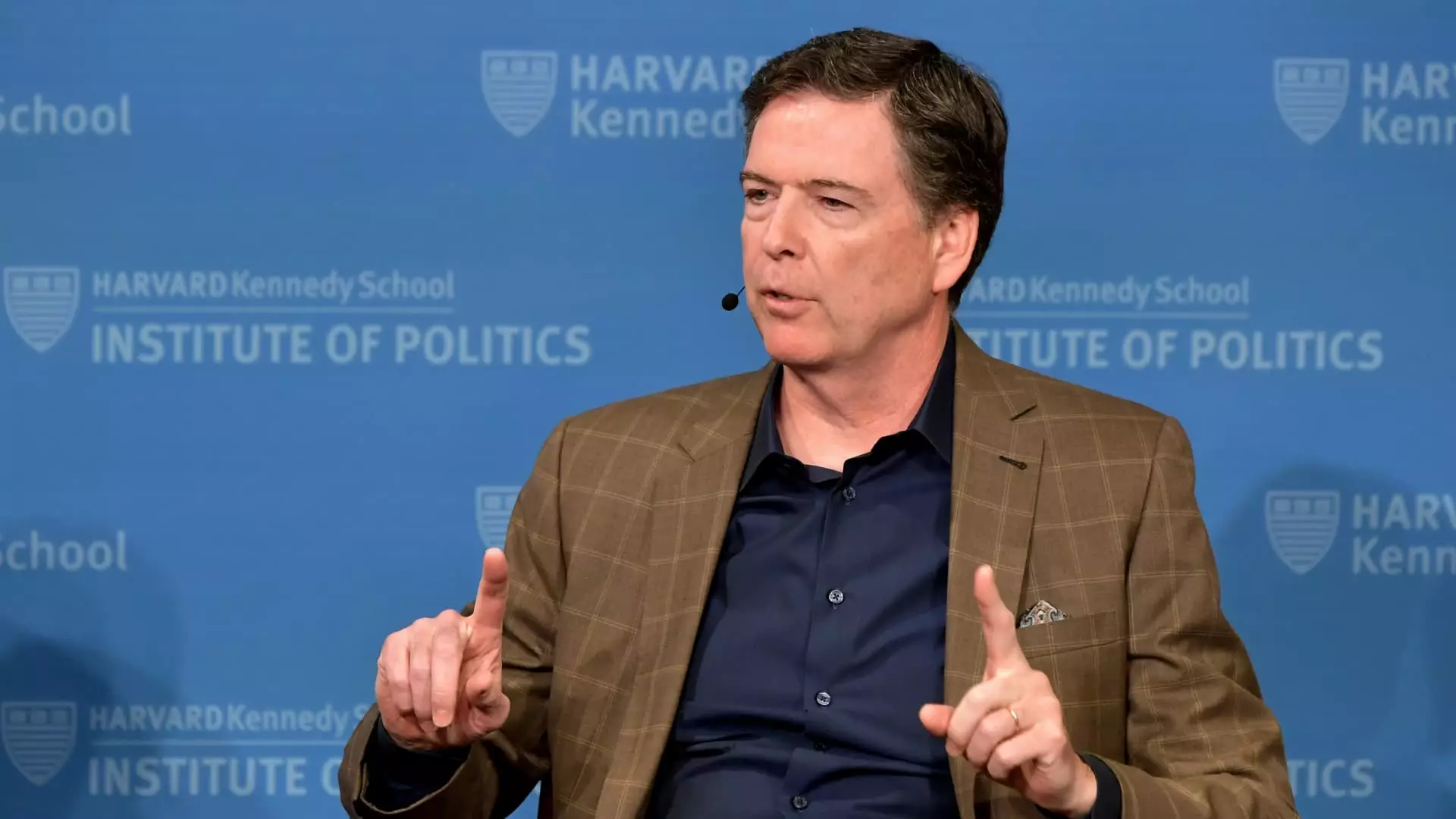In an age where every digital footprint can lead to uproar, a mere Instagram post from former FBI Director James Comey has sent shockwaves through the political landscape of the United States. The post, which referenced a seemingly innocuous “shell formation” on a beach, bore numbers that, when decoded by some as “8647”—a phrase that can mean “to get rid of”—was interpreted by many as an incitement to violence against President Donald Trump. This interpretation spiraled into a high-stakes controversy, showcasing just how potent social media can be in our politically charged climate.
While Comey has since taken down the post and defended himself against accusations of threatening the president, the outrage it fostered is not merely a fleeting social media debacle. Rather, it is indicative of a profound, underlying struggle for narrative control in a domain where words carry incredible weight. Political rhetoric is increasingly scrutinized, and any hint of threatening discourse is seized upon by opponents seeking to discredit and vilify. Secretary of Homeland Security, Kristi Noem, left no room for ambiguity when she claimed that Comey’s post “just called for the assassination of @POTUS Trump.” Such statements invite an aggressive response, inspiring calls for investigation and even the arrest of a former Director of the FBI.
Parsing the Context
To understand the fallout from Comey’s post, one must consider the political landscape marked by adversarial engagements and entrenched factions. The reaction from Trump’s allies—ranging from the fervent indignation voiced by Donald Trump Jr. to the urgent calls for arrest from some legislators—reveals a magnified sensitivity in political discourse. For many, the term “eighty-six” has been associated with casual removals, and the mere suggestion of violence, even if stated indirectly, maps a treacherous path for public figures like Comey. In an environment where partisan tensions run high, every word is weaponized.
As an individual deeply entwined in a historical conflict characterized by accusations and investigations into Trump’s dealings, Comey’s position makes his words resonate even more significantly. His term as FBI Director ended dramatically under Trump’s administration amidst fierce backlash, creating a narrative framework where trust and loyalty are constantly questioned. Given this context, it’s critical to consider how public figures manipulate symbolism and language—whether intentionally or due to ignorance—amidst an audience primed for outrage.
The Role of the Secret Service in a Polarized Society
The immediate equivalent reactions from government officials underscore a broader reality: the delicate balance the Secret Service must strike in investigating potential threats. Any perceived menace towards a sitting president demands swift action, as stated by Secret Service spokesperson Anthony Guglielmi, asserting that the agency “vigorously investigates anything that can be taken as a potential threat.” This revelation poses a reflective moment on how security measures overlap with the politics of public discourse.
By defending Comey’s post, which was hastily branded a threat, we’re challenged to confront larger questions about First Amendment rights and the implications of political speech. The government’s response not only addresses the rhetoric from public figures but also hints at an arena where the boundaries of free expression are hotly contested. The vivid repercussions of this incident illustrate how quickly public sentiment can transform; essentially, one improperly worded post could initiate an intense governmental inquiry into its author.
The Double-Edged Sword of Political Engagement
One cannot ignore that James Comey’s earlier encounters with the political system have forever shaped perceptions of his character and intentions. What happens when a figure laden with political baggage makes a statement that can be misinterpreted? Does it diminish the quality of engagement in a society that prides itself on democratic discourse? Or does it illuminate the necessity for leaders to tread carefully in speech, regardless of intent?
Thus, the Comey episode extends beyond mere social media missteps: it is a reflection of our disjointed political dialogue and how easily narratives can be constructed and reconstructed around a single moment. In this bitterly divided polity, polarization reigns, allowing conservative and liberal camps to wield rhetoric aimed at delegitimizing their opposition. Comey’s experiences echo a larger phenomenon in which every tweet, post, and public statement risks invoking a propagating arm of political scrutiny, a reality that may ultimately silence more than it empowers.


Leave a Reply